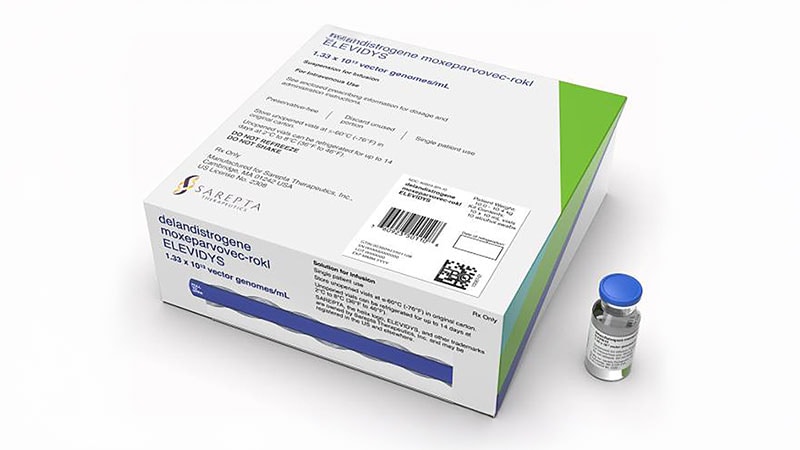At its July 2025 meeting, the European Medicines Agency’s (EMA) Committee for Medicinal Products for Human Use recommended not granting marketing authorization for the Duchenne muscular dystrophy (DMD) gene therapy treatment delandistrogene moxeparvovec (Elevidys, Sarepta Therapeutics).
Patients with DMD lack normal dystrophin, found primarily in skeletal and cardiac muscle cells, such that their muscles become progressively weaker and eventually stop working.
Elevidys is an adeno-associated virus vector-based gene therapy product for ambulatory patients aged 4 years and older with a confirmed mutation in the DMD gene. It contains the active substance delandistrogene moxeparvovec, made of a virus containing genetic material, to produce a truncated version of dystrophin and thereby slow down disease progression. It is given as a single infusion as a one-time treatment designed to treat the underlying cause of DMD.
In making their decision, the EMA said that a study had failed to show that Elevidys had an effect on movement abilities after 12 months.
No Significant Improvement
The study involved 125 children aged between 4 and 7 years with DMD who were able to walk and who received one infusion of either delandistrogene moxeparvovec or placebo. The main measure of effectiveness was an effect on movement abilities over 12 months, assessed using the North Star Ambulatory Assessment (NSAA). The scale ranges from 0 to 34, with higher scores indicating better movement abilities.
Improvements in NSAA scores were observed in patients who received delandistrogene moxeparvovec and placebo. The difference in the change in scores between the two groups was 0.65, which was not statistically significant.
In addition, although many patients treated with delandistrogene moxeparvovec were shown to produce a shorter form of the dystrophin protein, the levels of dystrophin could not be linked to an improvement in movement abilities, the EMA said.
Acute Liver Failure Deaths
In March this year, a 16-year-old boy died from acute liver failure after receiving treatment with Elevidys in December the previous year.
In the wake of this — and at the request of the EMA — in April this year, the company temporarily halted clinical studies of the treatment in the EU. Patients who had previously been treated with Elevidys in a clinical trial continued to be monitored.
In June, a second patient, aged 15, who had been treated with the drug also died from acute liver failure.
Earlier this month, the FDA asked the company to include a “black-box” warning for the risk of acute liver injury and liver failure in patients with DMD who can walk.
The EMA said that the company that had applied for a marketing authorization may ask for re-examination of the opinion within 15 days of receiving the agency’s opinion.
Rob Hicks is a retired National Health Service doctor. A well-known TV and radio broadcaster, he has written several books and has regularly contributed to national newspapers, magazines, and online publications. He is based in the United Kingdom.
Source link : https://www.medscape.com/viewarticle/ema-says-no-duchenne-gene-therapyelevidys-2025a1000jqs?src=rss
Author :
Publish date : 2025-07-25 14:52:00
Copyright for syndicated content belongs to the linked Source.
